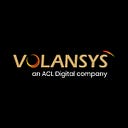IoT Based Asset Tracking Solution
Asset Tracking Blog Overview
The purpose of the asset tracking system is to improve workflows, reduce inventory loss, and introduce process optimization to improve overall operational efficiency and productivity. In any asset tracking system, the real-time location information of steady/moving asset is sent to cloud via gateway/router over a secure communication channel. The article describes key considerations to implement accurate & low-cost asset tracking solution that best fit your industry requirements. This article is divided into two parts, first will give you the overview of the IoT based Asset Tracking Solution, High-level Architecture of the system, Important system component information, and costing drivers to design system. The second article will give you the complete details of different types of protocol compressions and widely popular industry applications.
Advantage of IoT Based Asset Tracking
Contrary to an age-old & passive asset tracking system, IoT based asset tracking is a smart, efficient and intelligent system IoT-enabled asset tracking solutions utilize IoT sensors-to remotely track application-specific details of the asset without any human intervention. These IoT sensors can be attached to assets along with the conventional tracking tags (e.g. QR codes, RFID Tag, Barcode). Depending on the industry needs, there can be multiple use cases based on IoT solution while considering the criticalness of the asset with respect to the overall solution cost. Traditional passive solutions are simple, low-cost and easy to implement. However, the costly and premium IoT enabled solutions are largely getting popular day by day in different industries.
Advantages of IoT Enabled Asset Tracking System:
- Automation of the tracking process
- Real-time information
- Live inventory management
- Environmental and usage information
- Automated reminders and alerts
- Accurate device location
- Ensure regulatory compliance
- Quick asset audits
Key components of Asset Tracking Solution:
There are five major components Tags, Reader/Hub, Gateway, Cloud, and Mobile App that cover the entire solution as explained in the following section. Selection of each component will make a differentiate the solution, depending on the industry needs.
- Tag: The tags are the most important unit identity for all the assets, which supports the wireless communication protocol to communicate with a reader for tagged information. The tags can be RFID, Barcode, Zigbee, Z-Wave, thread, BLE/Bluetooth 5.1 supporting Angle of Arrival (AOA) and Angle of Departure (AoD) both active and passive nature.
- Reader/Hub: This is a device that detects the tags available in the specific area and sends the same data to the gateway or to the cloud acting as an aggregator of the data in that region. Now a days some of the readers are capable enough to send the tag’s data directly to the cloud without the help of the gateway. Different reader’s types are — Passive Reader, Active Tag (PRAT), Active Reader Passive Tag (ARPT), Active Reader Active Tag (ARAT).
- Smart Gateway: The gateway is the heart of the system. Hence, it is smart enough to do multiple operations like maintaining the connectivity with the IoT Cloud-sending the tag’s data to the cloud real-time, saving the tag’s status/information when the internet connection is not available, analyze tag’s information and work smartly to save the battery. Gateway adds tremendous value in the system by local computational capabilities in many of the use cases. The gateway should broadly support one or more of the following operating systems like VxWorks, AWS FreeRTOS, Zephyr, uC/OS and Linux for further application development.
- IOT cloud: The IOT cloud is the main interface of the system from where we can get all the inventory status in real time. The cloud is capable to do business analysis with the help of the predefined logic with possible AI & ML and represents the data further in a structured form. More than one clouds can be used for multiple services like data analysis, real-time data monitoring, gateway monitoring, etc. The cloud requires to support the HTTPS, MQTT, CoAP, etc. largely popular protocols to communicate with the gateway/devices.
- Connected Mobile Application: The Mobile app is one of the main components of the solution depending upon the type of solution or application. The mobile app can be very effective in guiding the direction, data display, quick information regarding any asset under surveillance, notification/alert for any critical situation.
Major Cost Drivers: Tags Cost Vs Infrastructure Cost
Designing optimum Asset Tracking Solution is also a big challenge. It completely depends on the kind of asset we are trying to track and what level of advantage we would want to get by setting up these solutions. There are two major cost drivers, number of tags and infrastructure setup cost. More sophisticated tags are higher in cost but definitely needs less costly infrastructure. On the other hand, the simple low-cost tags would need a very sophisticated infrastructure having a higher cost.
Subsequently, In an upcoming article, we are going to get in the details of the wireless protocol getting selected to create the Asset Tracking solution with the impacting parameters on selection. We will also talk about widely used industry applications and how it benefits the industry.
Next article in continuation of the above is planned in 1st week of July 2019. Keep visiting us for more information. You can also connect to us using our Contact Us tab for more information on similar topics or consultation on any of your ongoing projects.
Know more about VOLANSYS HomeBridge Solution for indoor Asset Tracking Solution and VOLANSYS Modular IoT Gateway Platform for outdoor Asset Tracking Solution
Originally Published at : https://www.volansys.com/blog/asset-tracking-solution/
